Voters to decide on more state aid for Swiss media
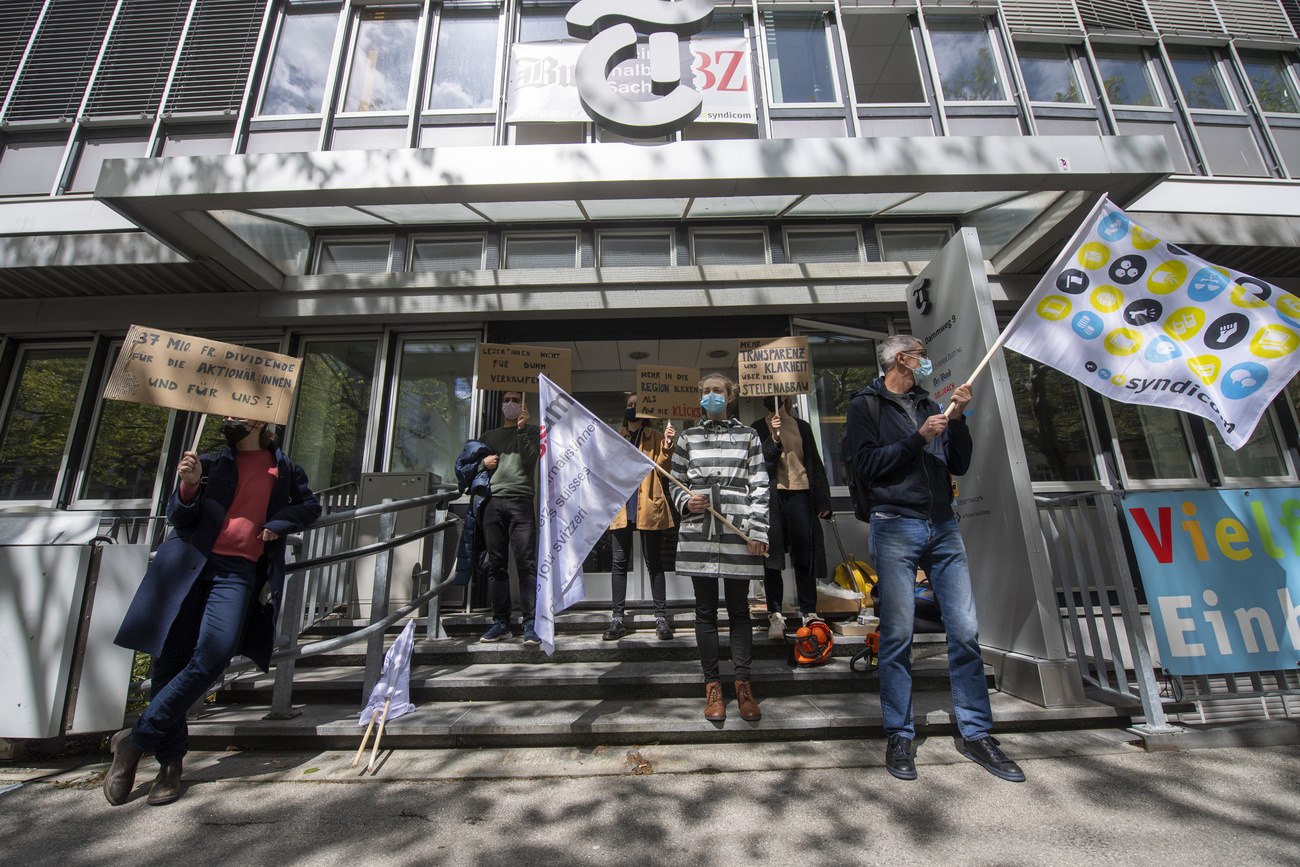
News organisations continue to face tough times: huge losses in advertising revenue, lower subscriptions and stiff competition from internet giants like Google. The Swiss authorities want to help the press by offering more financial aid to ensure better quality and diversity. Citizens will vote on February 13 on funding measures aimed at supporting privately owned newspapers, radio and television channels and online news sites.
What’s it all about?
Last summer, the Swiss parliament approved a new government policy to provide more support to private media organisations via a package of direct and indirect financial aid. The plan is to allocate an additional CHF151 million ($165 million) a year to newspapers, radio and television channels and online news sites. Politicians and publishers who oppose the decision have initiated a referendum. Swiss voters will decide on February 13.
The Swiss Broadcasting Corporation (SBC), swissinfo’s parent company, is financed by the radio and TV licence fee and is not affected by this series of measures.
What is the current state of the Swiss media?
The growth of the internet and of companies like Facebook and Google have caused huge upheaval in the Swiss media landscape. News and advertising have developed rapidly online, resulting in lower subscriptions at traditional media companies and reduced income. Over the past 20 years, advertising revenue for privately owned newspapers, magazines and radio stations is down by about 40%.
The Swiss media have tried to produce profitable digital content but the public remains reluctant to pay for articles online, where advertising rates are also lower. Consequently, around 70 Swiss newspaper titles have disappeared since 2003. Many titles have been taken over by large media groups, reducing press diversity across the country. Cost-cutting measures imposed on newsrooms have also hit hard; many text-based journalists have lost their jobs. The situation has got worse with the Covid-19 pandemic, as numerous cancelled events have deprived the media of important advertising revenue.
Nevertheless, the growth in smartphone use and the crisis of traditional media companies have also triggered a wave of enthusiasm for the creation of new online news platforms. Over the past ten years, a number of projects have sprung up that experiment with different formats and economic models. Some of these “new media” companies have not survived for long, but others have managed to grow and create jobs. These include the online new magazine Republik, which became profitable thanks to readers’ support, the free news sites Watson and Blick, which are entirely financed by advertising, and Heidi.news, which is financed via subscriptions and a private foundation.

More
Heidi News and other niche publishers take the plunge in Geneva
How much money is involved in the project and who stands to gain?
The government’s project aims to increase state aid for the media by CHF151 million to a total of CHF287 million a year. Newspapers and some other publications already benefit from indirect state support via preferential rates that help cover the costs of distributing their paper editions. This aid will be increased, rising by CHF70 million to an annual sum of CHF120 million. The funding comes from the current federal government budget.
Regional radio and TV channels already receive a proportion of the radio and TV licence fee collected from households. This subsidy will rise to CHF109 million from CHF81 million a year. Funding will also increase for the Keystone-SDA news agency, the Swiss Press Council and training for journalists. They currently receive CHF4 million from the radio and TV licence fee, and CHF1 million from the Swiss government. An additional contribution from the licence fee will raise this to a total of CHF28 million per year.
A new direct subsidy for online media will be introduced to help media organisations with the digital transition. A special law foresees payments of CHF30 million a year from the federal government budget. Only media that are partially funded by readers are eligible for this money; free websites cannot apply.
The funds allocated for newspaper distribution and the support for online media are for a limited duration: they end after seven years.
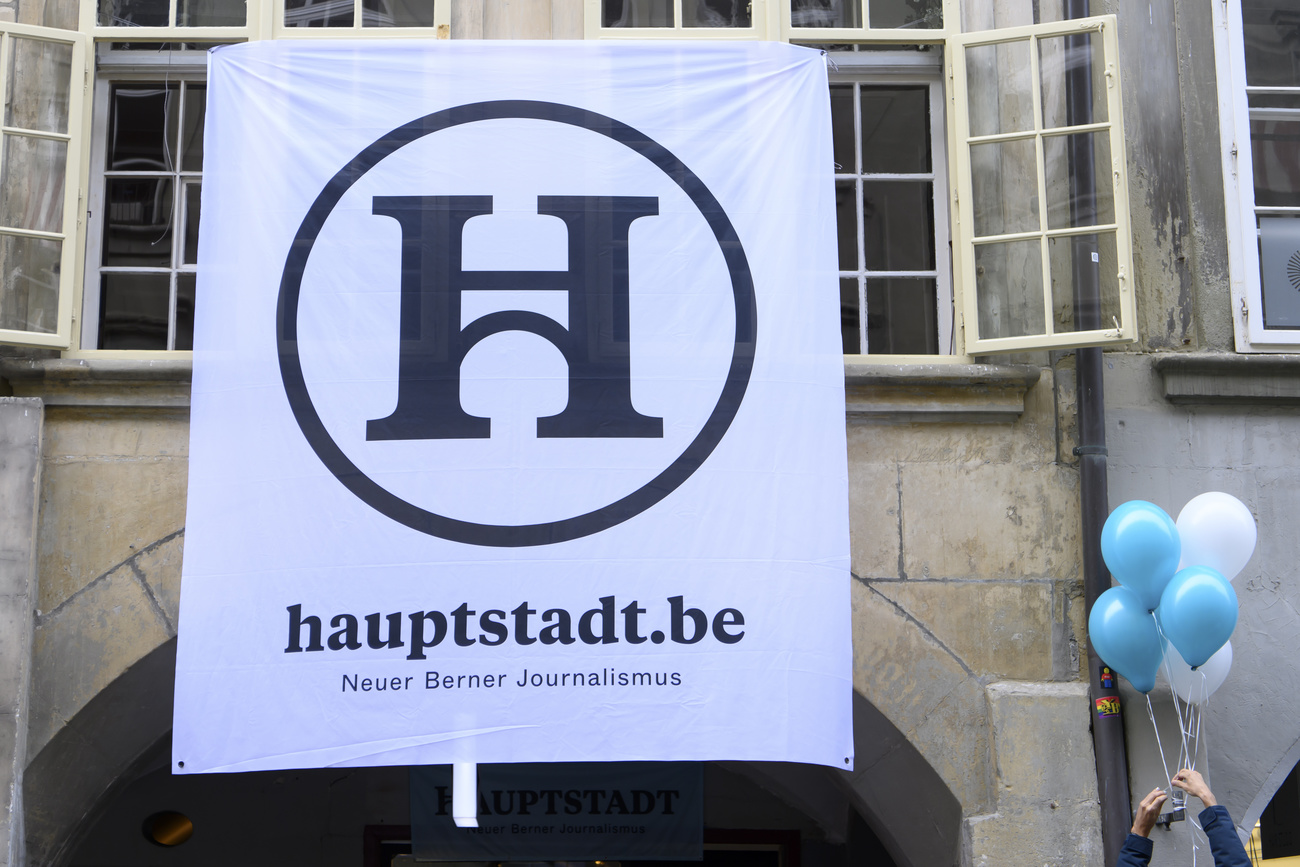
More
Broad support for direct funding of Swiss media
Who is behind the referendum?
It was launched by the right-wing Swiss People’s Party, which opposed the funding measures for the media in the parliamentary votes. The referendum committee describes itself as “apolitical,” but it comprises several members and friends of the People’s Party. It also includes publishers, editors and businesspeople mainly in German-speaking Switzerland.
A parliamentary committee has also been formed to support the referendum. It is composed of about 80 Swiss People’s Party delegates and several members of the centre-right Radical-Liberal Party and the Centre Party.
What are their arguments?
Opponents of the government project object that the financial aid will also benefit the wealthiest publishers and companies quoted on the stock exchange. They argue that the aid is not economically justifiable because the five biggest press groups in Switzerland have generated profits in recent years and can finance themselves.
The referendum committee maintains that state subsidies diminish the independence of the media and prevent them from exercising their powers as the fourth estate that critically scrutinises politicians and authorities. “Their financial dependence undermines their independence,” the referendum initiators say. They also believe that state aid distorts competition.
In addition, the committee criticises a lack of transparency in how the money will be allocated and regret that free news platforms are excluded from any kind of support. “The planned subsidies for the media are antisocial. Only the wealthy classes who can afford a newspaper or online subscription will benefit from them,” it states.
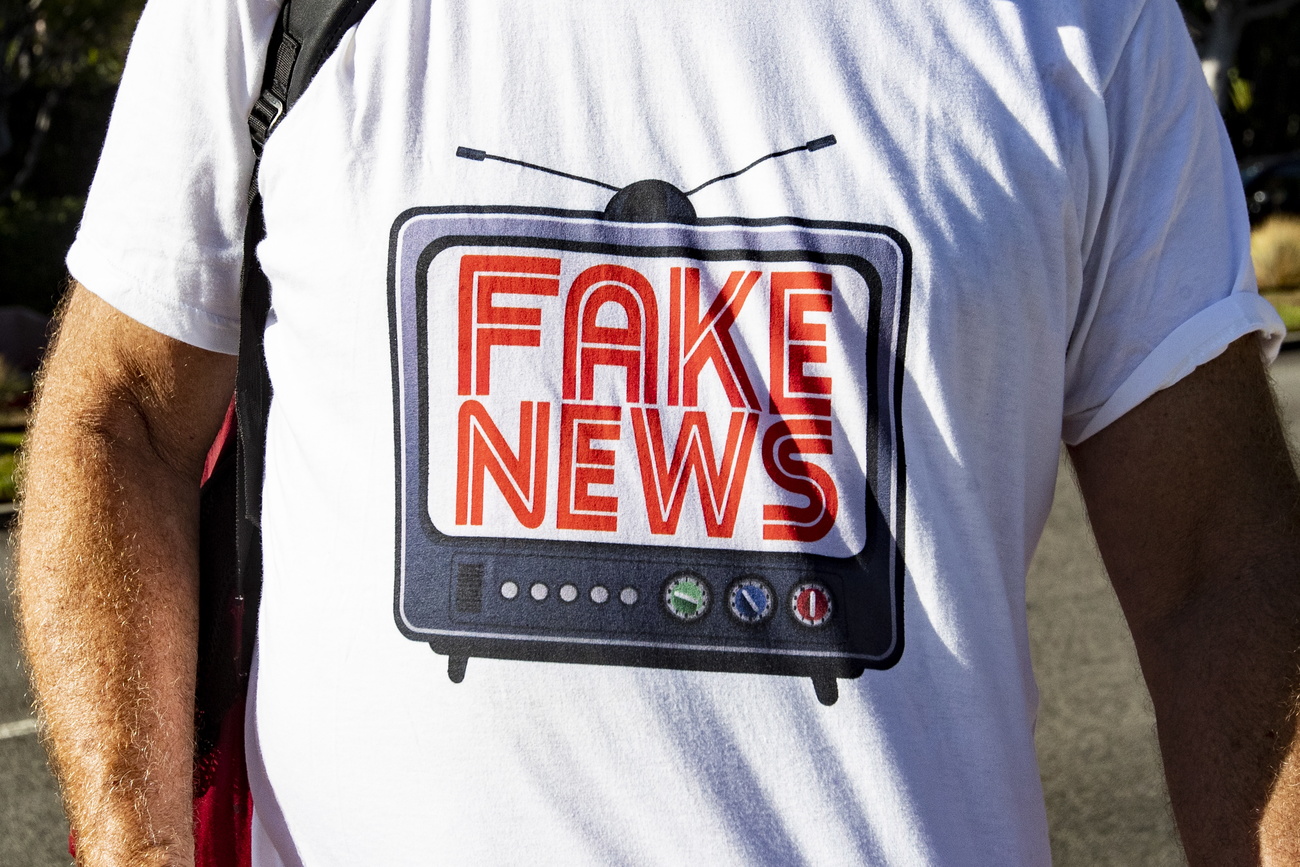
More
Media consumers alive to threat of fake news
Who supports the package of measures for the media?
The government and parliament are appealing to voters to accept the additional financial support for newspapers and radio and television broadcasters. A cross-party committee has been formed to support the project. Its members include about 100 lawmakers from all parties except the People’s Party, 80 media companies and 15 other organisations, including Reporters Without Borders.
What are the arguments in favour of the additional media subsidies?
“Without this package, there is a risk that more newspapers will disappear, that local radio will be weakened, and that certain regions will no longer have news sites,” warns Communications Minister Simonetta Sommaruga.
She explains that the criteria for obtaining direct subsidies will prevent the authorities from wielding any influence over editorial teams. The media will have to prove a clear distinction between journalistic content and advertising, offer news on political, economic and social realities, and respect recognised journalistic rules.
The support committee underlines that the free press is a cornerstone of Swiss direct democracy. “There is hardly any other country where citizens can participate so intensively in political life,” says Social Democrat parliamentarian Matthias Aebischer. “That’s why strong, independent media that inform the population in a reliable and balanced way are essential.”
More
Translated from French by Catherine Hickley

In compliance with the JTI standards
More: SWI swissinfo.ch certified by the Journalism Trust Initiative
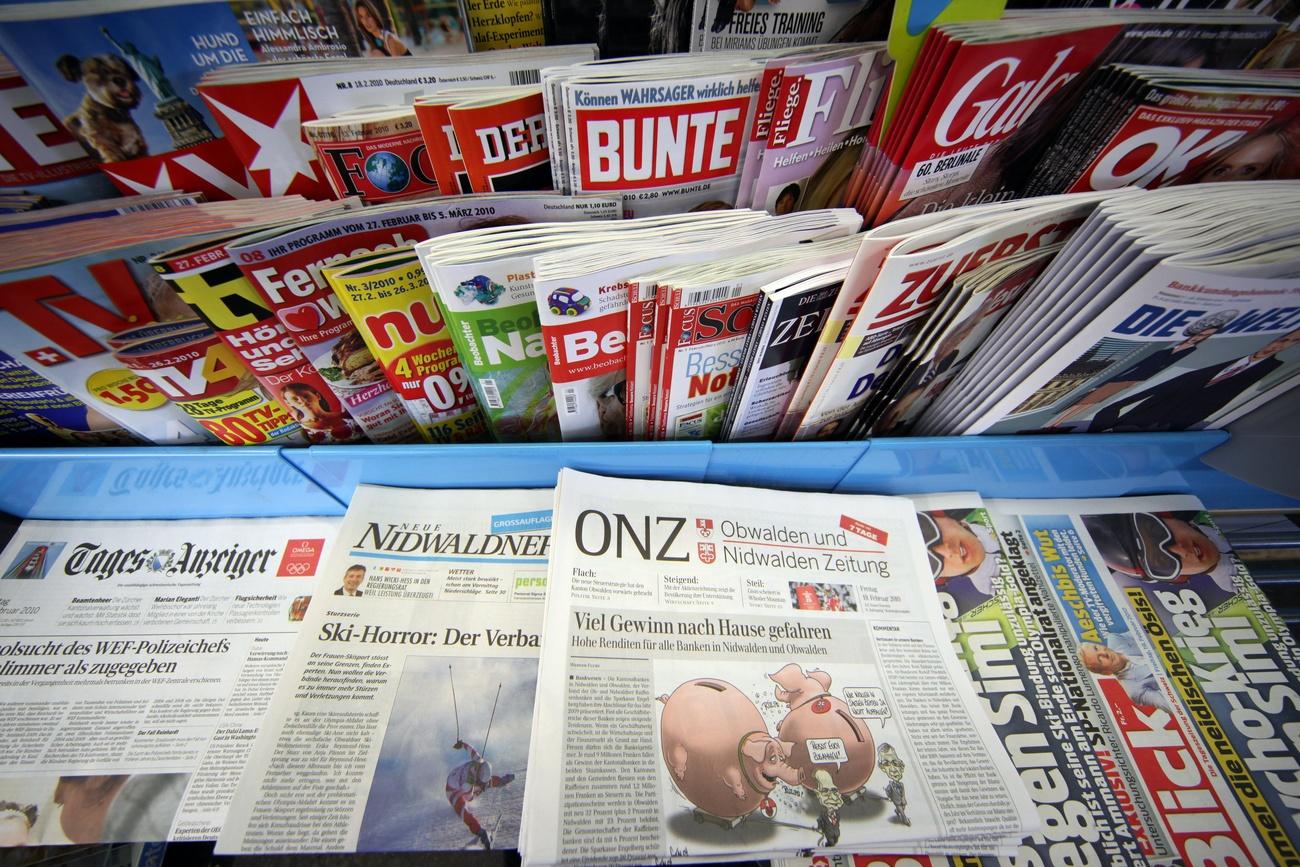
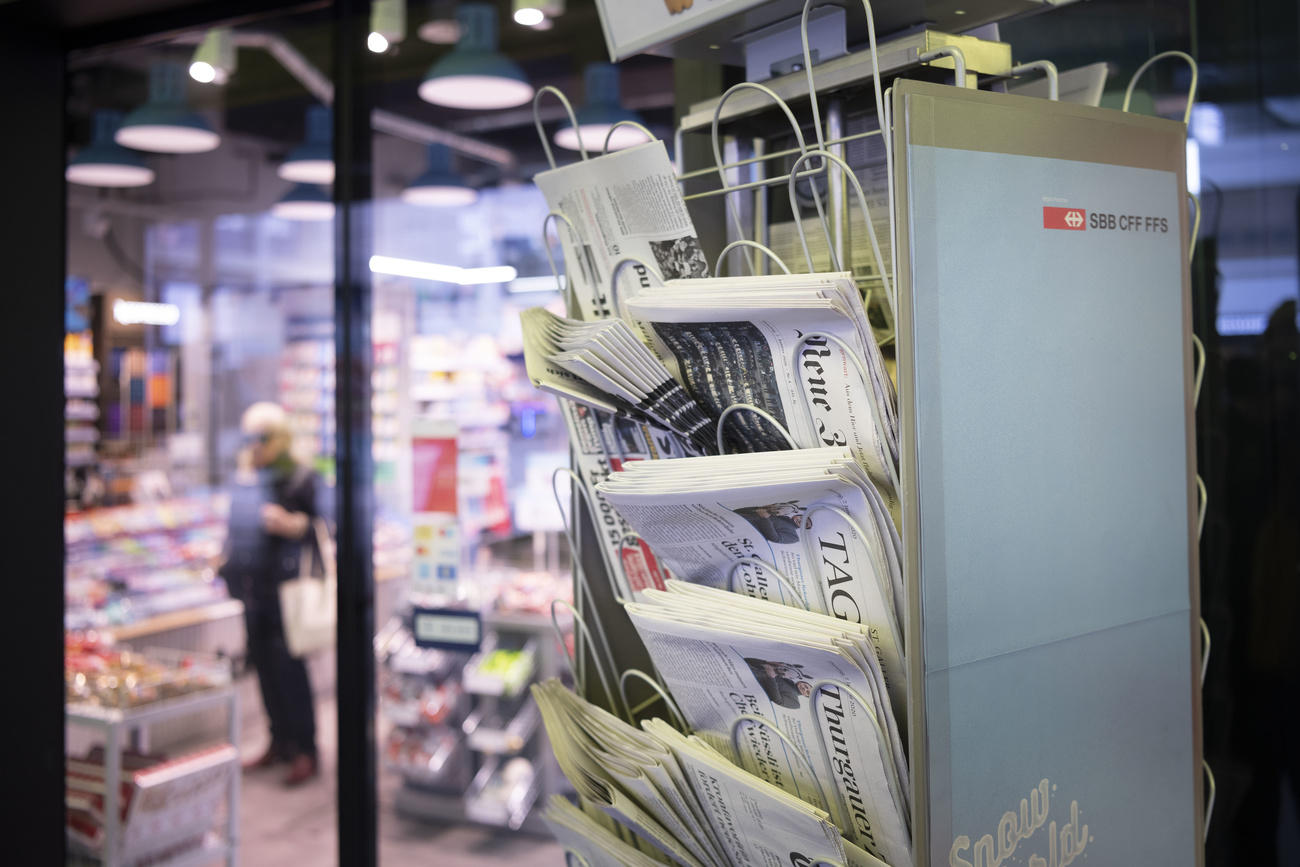
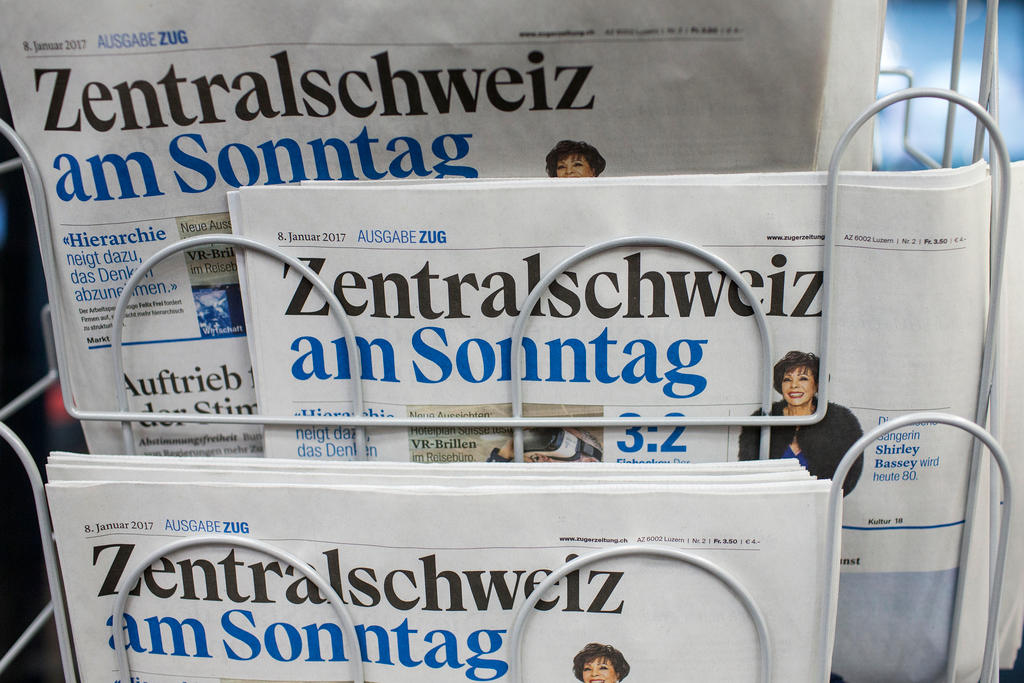

Join the conversation!